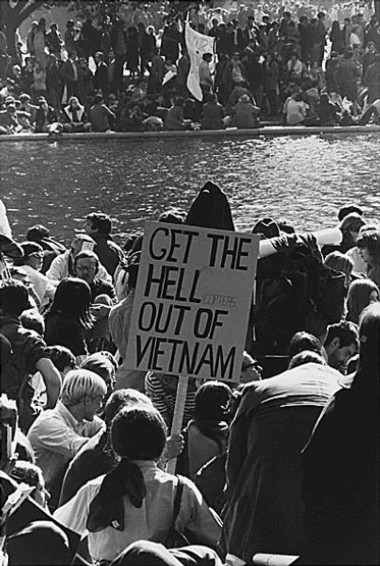Worth Quoting
“[In the 1960s], American students sought to wrest themselves entirely from the disciplinary control of their colleges and universities, institutions that had historically operated in loco parentis, carefully monitoring the private behavior of undergraduates. The students of the new era wanted nothing to do with that infantilizing way of existence, and fought to rid themselves of the various curfews, dorm mothers, demerit systems, and other modes of institutional oppression. If they were old enough to die in Vietnam, powerful enough to overthrow a president, groovy enough to expand their minds with LSD and free love, then they certainly didn’t need their own colleges—the very places where they were forming their radical, nation-changing ideas—to treat them like teenyboppers in need of a sock hop and a chaperone. It was a turning point: American colleges began to regard their students not as dependents whose private lives they must shape and monitor, but as adult consumers whose contract was solely for an education, not an upbringing. The doctrine of in loco parentis was abolished at school after school.”
—Caitlin Flanagan, in her article, “The Dark Power of Fraternities,” in the March issue of The Atlantic
Documentary Exposes Buried Death Camp
A death camp in Poland shut down and buried by the Nazis. A Springfield native, now a PBS documentary maker, who is following the archaeological dig that’s now exhuming the Sobibor camp and has located its most appalling component, the gas chamber. On March 23 at Sinai Temple in Springfield, Valley residents will have a chance to view a part of the documentary-in-progress, Deadly Deception at Sobibor, in which Gary Hochman has invested five years of work and passion—even more passion since year four, when he discovered that 17 people with his own name, Hochman, had passed through the camp. His research has not yet determined whether any were his relatives. But because of the name, says Hochman, “It is pretty clear to me in my heart that I was meant to be here. I was meant to do this.”
Sobibor was a much smaller camp than Auschwitz; only about 250,000 people, including Jews from France and Holland and some non-Jews, passed through it. But the atrocities that occurred here were of the same nature. The Nazis carried out mass executions by suffocating victims, in this case with fumes from a large automotive engine. The camp is known because of the testimony of survivors, and a small museum has existed at the site, but the physical layout has been invisible because the Germans covered it over and planted the site with trees.
“If the archaeologists hadn’t gotten drawn into it, we would have known from eyewitness testimony that things happened, but we wouldn’t have known where they happened,” Hochman said. The excavators are using aerial photos, including Nazi photos, to determine the location of the gas chamber at the end of a walled path the Nazis called the Road to Heaven.
Hochman, who hopes to finish the documentary within a year, said he found the strenuous Sobibor dig a compelling subject because “anytime you find information the Nazis tried to conceal, when you have science to corroborate what the people have said, that’s like a victory for the people. The Nazis never figured that anyone would come back and do anything this crazy.”
Gary Hochman screens footage from his unfinished documentary, Deadly Deception at Sobibor, at 9:30 a.m. Sunday, March 23 at Sinai Temple, 1100 Dickinson Street, Springfield. $5 admission for nonmembers covers breakfast of lox, bagels, eggs and coffee.
By The Numbers
43: The percentage of respondents to a MassInc Polling Group survey of Massachusetts residents who think “prevention” should be “a top priority for dealing with crime”
21: The percentage who chose “rehabilitation” as the top priority
15: The percentage who chose “punishment”
44: The percentage who said that, when it comes to sentencing, judges should be able to “decide the punishment each time on a case by case basis”
11: The percentage who prefer mandatory minimum sentencing



